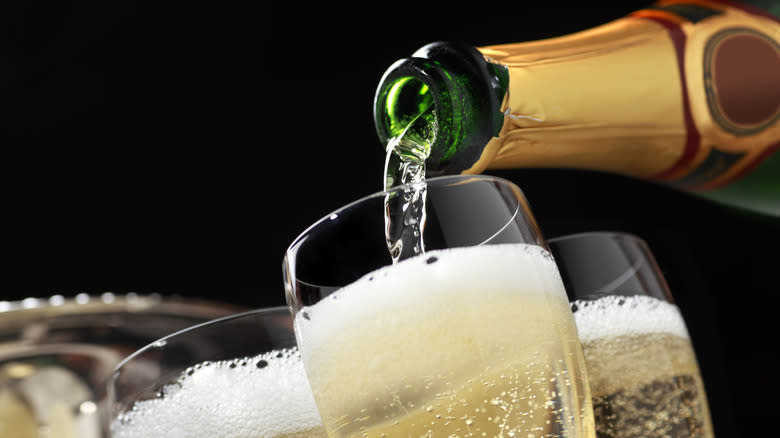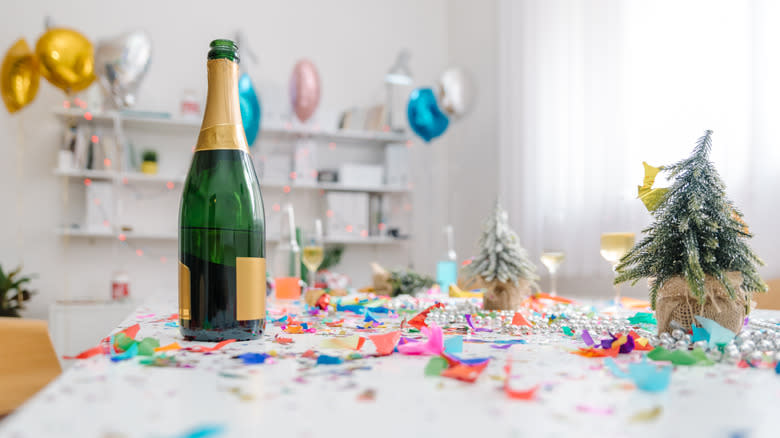How Long Is Champagne Good For After Opening The Bottle?

Any carbonated beverage will lose its bubbles once exposed to air. As anyone who's ever screwed the top back on a soda bottle knows, even re-capping the drink will only slow the process, not prevent it. Once the seal's been breached, you can't put the genie (or the bubbles) back in the bottle. Now, this may not be a big deal when you're talking about a soft drink that costs a buck or two, but when you've dropped serious coin on an expensive bottle of capital-c Champagne, you'll want to get the most bang (and bubbles) for your big bucks.
Wine industry professionals all seem to have different ideas about how long it takes for Champagne (or other sparkling wines) to go flat. The more optimistic ones will give a window of up to five days for wine stored in the refrigerator, although they note that it will not taste quite the same on day five as it did on the day you opened it. Some, however, feel that you absolutely must finish up the bottle within hours of popping the cork. Still other experts feel that factors like the age of the Champagne and how much pressure was originally inside the bottle will affect its longevity to the point where it's likely to vary from bottle to bottle.
Read more: Bottled Water Brands, Ranked Worst To Best
What To Do If Your Champagne Goes Flat

Even the best-laid plans don't always work out, so you may mistime your sparkling wine consumption and open one more bottle than the company can finish in a single sitting. In this case, you can hope that certain experts are correct in surmising your bottle will retain at least some of its bubbles for five days in the fridge (colder wine can hold more CO2, after all). You can also facilitate this by sealing up the bottle with plastic wrap or foil, since those real corks used for Champagne can't be fitted back in the bottle without some serious whittling. Even if you've — gasp! — bought the kind of inexpensive sparkling wine that comes with a plastic cork that can be reinserted, it's inadvisable to do so, as the pressure inside the bottle may cause it to shoot off and make a mess inside of your fridge.
If all else fails and your bubbly goes flat, there's no need to pour it down the drain. You can always turn your leftover Champagne (or "champagne") into a wine slushie (that spin in the blender was going to kill the carbonation anyway) or use it for cooking purposes. Pink champagne cake, champagne cream sauce for chicken or pasta, champagne mignonette for oysters, or even champagne-battered fried shrimp ... With so many options, there's no need for a single drop of your pricey libation to go to waste -- even when it's down to its very last bubble.
Read the original article on Mashed.
